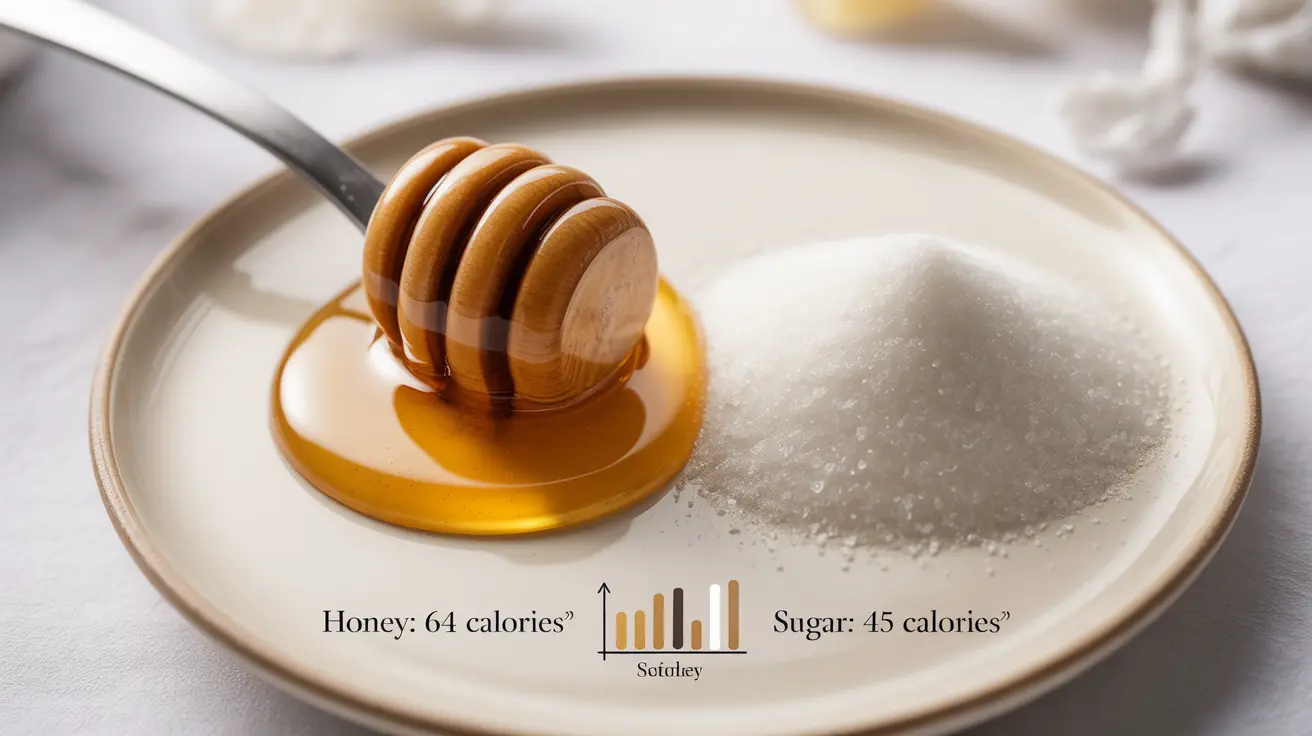When it comes to sweetening foods and beverages, both honey and sugar are popular choices. However, their caloric content and nutritional profiles differ significantly. Understanding these differences can help you make more informed decisions about which sweetener to use in your diet.
Let's explore the caloric content of honey versus sugar, their effects on blood sugar, and their unique nutritional characteristics to help you better understand these common sweeteners.
Caloric Content Comparison
A teaspoon of honey contains approximately 21 calories, while a teaspoon of granulated sugar contains about 16 calories. Despite honey having more calories, it's actually sweeter than sugar, which means you might use less of it to achieve the same level of sweetness in your foods and beverages.
Understanding Sweetness and Density
Honey's higher caloric content per teaspoon is primarily due to its density. Since honey is more concentrated than granulated sugar, a teaspoon of honey weighs more and therefore contains more calories. However, honey is about 1.5 times sweeter than table sugar, which means you can potentially use less honey to achieve the same sweetness level.
Nutritional Differences
Vitamin and Mineral Content
While both sweeteners primarily provide carbohydrates, honey contains trace amounts of essential nutrients that sugar lacks:
- B vitamins
- Vitamin C
- Minerals including calcium, potassium, and zinc
- Antioxidants and flavonoids
Composition Breakdown
Sugar is 100% sucrose, while honey contains:
- Fructose (around 38%)
- Glucose (around 31%)
- Water (around 17%)
- Other compounds including minerals and enzymes
Blood Sugar Impact
Although both honey and sugar affect blood glucose levels, their impacts differ slightly. Honey has a lower glycemic index than regular sugar, meaning it causes a somewhat slower and more gradual rise in blood sugar levels. However, this difference is relatively modest, and both sweeteners should still be consumed in moderation.
Health Considerations
While honey does contain some beneficial compounds not found in refined sugar, it's important to remember that both are still forms of added sugar. The American Heart Association recommends limiting added sugars to no more than 6 teaspoons daily for women and 9 teaspoons for men.
Frequently Asked Questions
How many calories are in a teaspoon of honey compared to a teaspoon of sugar?
A teaspoon of honey contains approximately 21 calories, while a teaspoon of sugar contains about 16 calories. The difference is due to honey's higher density and concentration.
Does honey have a lower impact on blood sugar levels than table sugar?
Honey has a slightly lower glycemic index than table sugar, which means it causes a somewhat slower rise in blood sugar levels. However, the difference is minimal, and both should be consumed in moderation.
What are the nutritional differences between honey and sugar?
While sugar is purely sucrose, honey contains various nutrients including vitamins, minerals, antioxidants, and enzymes. Honey is composed of fructose, glucose, water, and other beneficial compounds, whereas sugar provides no additional nutritional benefits.
Is honey a healthier alternative to sugar for people with diabetes?
While honey has a slightly lower glycemic index than sugar, it still significantly impacts blood sugar levels. People with diabetes should consult their healthcare provider about using either sweetener and should carefully monitor their total carbohydrate intake.
Why does honey have more calories than sugar even though it is sweeter?
Honey has more calories per teaspoon because it's denser and more concentrated than granulated sugar. However, since honey is about 1.5 times sweeter than sugar, you may need less honey to achieve the same level of sweetness, potentially resulting in fewer total calories consumed.
Remember that whether you choose honey or sugar, moderation is key to maintaining a healthy diet. Both sweeteners should be used sparingly as part of a balanced nutritional plan.




